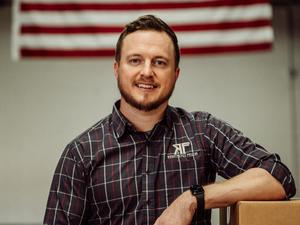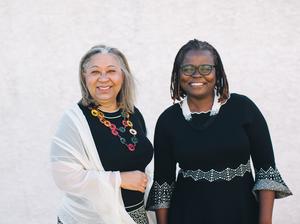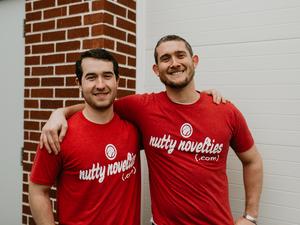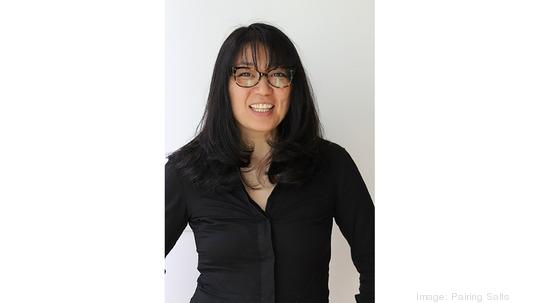
Atsuko Boyd long had a calling for the culinary world, she just didn’t always quite know it. That calling ultimately led the former business executive to launch a food consulting company and more recently her own line of products.
The result was Center City-based Pairing Salts. Initially focused on creating fresh spice blends that could be used to season certain proteins and subsequently pair with certain beverages — the products, known as meal starters, are named for types of wine — it has since evolved to include uniquely flavored chips.
Boyd came up with the concept for Pairing Salts many years before and the idea lingered in the background for about a decade. It was informed by her passion for the culinary arts, something she picked up from her parents. The youngest in her family, Boyd spent ample time in the kitchen helping her mother, a Julia Child fan who was trained in French culinary arts. Both of her parents had a passion for food, something that Boyd believes intensified after they emigrated to the Germantown area of Philadelphia from Japan.
“For them, food became very much sort of the language in which they evolved,” Boyd said.
A graduate of the University of Pennsylvania, Boyd never saw her career going in the direction it did, having spent the first decade working in product development of business management information systems. During that time, Boyd was a regional program manager for the Asia-Pacific region for Hewlett Packard. While living abroad, she was introduced to other types of cuisines but it also solidified for her the way food is a connector.
“People are more willing to share food memories or cultural differences, norms, and everybody really just sort of comes together around the table and food,” Boyd said.
When she returned to the U.S. — based in the New York metro area at the time — Boyd began focusing on the culinary arts. Pregnant with her second child, she pursued a degree at the Institute of Culinary Education. Thinking she might go into catering, Boyd ultimately decided to launch her own business, FoodStudio LLC, where she works with manufacturers and restaurants to develop new offerings, many to meet modern dietary demands like plant-based foods or allergen-friendly options.
As she was building the business, Boyd gained a deeper interest in the food sciences. Years later, Boyd moved back to Philadelphia, where she reentered the corporate world before ultimately pursuing Pairing Salts in 2017.
The patent-pending concept is related to intuitive eating, the idea of eating what the body inherently knows it needs and wants. In creating the blends, Boyd looked at meals as a whole, taking into consideration both food and drink with the idea of enhancing those profiles.
As she fine-tuned the vision, Boyd formulated blends, or meal starters, that make use of fresh spices. Part of that came out of the desire to create and share healthy meals with others pressed for time or kitchen know-how, as well as the lack of fresh spices on the market. “That's where I decided we were going to fill the market,” she said. Pairing Salts uses a global spice source that can get ingredients in a matter of weeks, compared with months that large-scale producers deal with. They also do small batch grinding to increase freshness.
The Cabernet1 blend, for example, is made with hibiscus flower, shallots and spearmint, while the Reisling1 features fennel, caraway seed and kaffir lime leaf. Meal starters come in one-ounce packages and retail for $6.99.
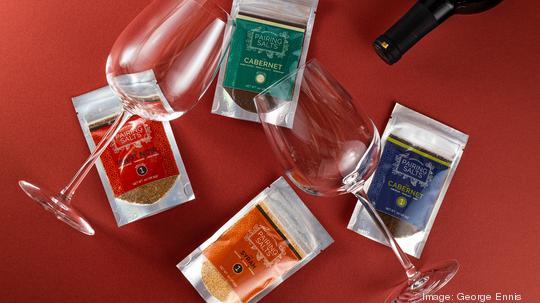
Because of the name, Boyd recognizes the meal starters come with some consumer hesitation given their connection to both salt and wine, something she’ll look to address in future marketing.
“What's interesting is that the people that have bought us and who come back as repeat [customers], they don't follow the rules and they don't worry about the wine, but it's become like a staple in their kitchen, almost like Frank's Red Hot sauce where they say we put it on everything. That's sort of the concept – keep it simple, but keep it really flavorful and good.”
Pairing Salts has been self-funded so far and has four employees. It hit the market in 2019 and was in select local Whole Foods by the end of that year. Then Covid-19 hit and Boyd decided to pivot to a product that would have more mass appeal.
That was a line of kettle-cooked potato chips that debuted last November. There are currently three flavors: dark cocoa and pasilla, hatch chile and tamarind, and tomatillo and wasabi. The latter has become a top seller.
“As we develop [chips], the other piece that I'm hoping Pairing Salts comes to be known for is the unique flavorings,” Boyd said.
The chips, which use a spice blend like with the meal starters, have gained popularity and Boyd landed a deal with The Giant Co. The grocer stocks the chips in its stores throughout the region. Chips, she believes, are the company’s future and will look to debut new flavors in time.
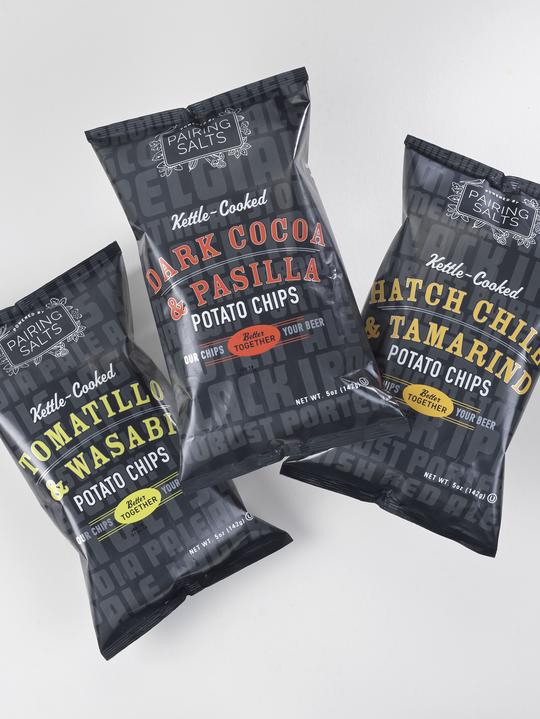
Why focus on spice blends you can pair?
We create formulations not just for beer and wine. That's sort of the hook, but it's really about food satiety, so formulations that allow for easy balance in meals and that's what a lot of people I think misunderstand. Good food is about balanced flavors, not how expensive your ingredients are, how expensive the wine is, or whether you're going to have wine. Your body is looking for a certain level of flavor, and then it will stop looking for it. It's part of the intuitive eating.
How did you think about intuitive eating?
The food culture [in the U.S.] is more about things like body image, or deprivation, eating to live versus living to eat. I feel like [intuitive eating is] not necessarily for everybody. I'm not encouraging intuitive eating for [everybody]. On the whole, your body is going to tell you what it likes, what it doesn't like.
What does product development look like in the future?
As best we can, we're trying to engage customers in intuitive eating. If you're going to eat [chips], eat them, but eat them in a way that makes sense. Pairing Salts will help to balance some of that because it's a clean label. We've tried to modify our portion sizes as well.
